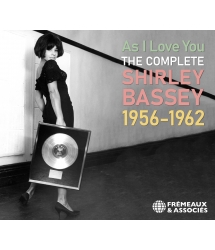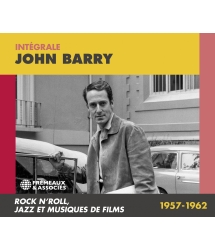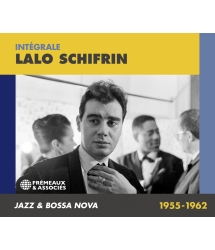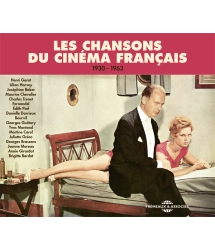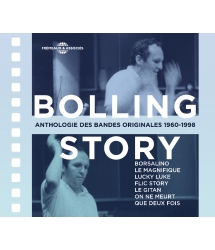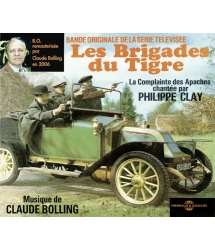- Our Catalog
- Philosophy
- Philosophers of the 20th century and today
- History of Philosophy (PUF)
- Counter-History and Brief Encyclopedia by Michel Onfray
- The philosophical work explained by Luc Ferry
- Ancient thought
- Thinkers of yesterday as seen by the philosophers of today
- Historical philosophical texts interpreted by great actors
- History
- Books (in French)
- Social science
- Historical words
- Audiobooks & Literature
- Our Catalog
- Jazz
- Blues
- Rock - Country - Cajun
- French song
- World music
- Africa
- France
- Québec / Canada
- Hawaï
- West Indies
- Caribbean
- Cuba & Afro-cubain
- Mexico
- South America
- Tango
- Brazil
- Tzigane / Gypsy
- Fado / Portugal
- Flamenco / Spain
- Yiddish / Israel
- China
- Tibet / Nepal
- Asia
- Indian Ocean / Madagascar
- Japan
- Indonesia
- Oceania
- India
- Bangladesh
- USSR / Communist songs
- World music / Miscellaneous
- Classical music
- Composers - Movie Soundtracks
- Sounds of nature
- Our Catalog
- Youth
- Philosophy
- News
- How to order ?
- Receive the catalog
- Manifesto
- Dictionnary











- Our Catalog
- Philosophy
- Philosophers of the 20th century and today
- History of Philosophy (PUF)
- Counter-History and Brief Encyclopedia by Michel Onfray
- The philosophical work explained by Luc Ferry
- Ancient thought
- Thinkers of yesterday as seen by the philosophers of today
- Historical philosophical texts interpreted by great actors
- History
- Books (in French)
- Social science
- Historical words
- Audiobooks & Literature
- Our Catalog
- Jazz
- Blues
- Rock - Country - Cajun
- French song
- World music
- Africa
- France
- Québec / Canada
- Hawaï
- West Indies
- Caribbean
- Cuba & Afro-cubain
- Mexico
- South America
- Tango
- Brazil
- Tzigane / Gypsy
- Fado / Portugal
- Flamenco / Spain
- Yiddish / Israel
- China
- Tibet / Nepal
- Asia
- Indian Ocean / Madagascar
- Japan
- Indonesia
- Oceania
- India
- Bangladesh
- USSR / Communist songs
- World music / Miscellaneous
- Classical music
- Composers - Movie Soundtracks
- Sounds of nature
- Our Catalog
- Youth
- Philosophy
- News
- How to order ?
- Receive the catalog
- Manifesto
- Dictionnary
THE AWAKENING, CATCH ME A SPY, SILVER BEARS, REDS, THE BAY BOY, CALIFORNIA HOTEL
CLAUDE BOLLING
Ref.: FA510
EAN : 3448960251020
Artistic Direction : STEPHANE LEROUGE
Label : Frémeaux & Associés
Total duration of the pack : 1 hours 57 minutes
Nbre. CD : 2
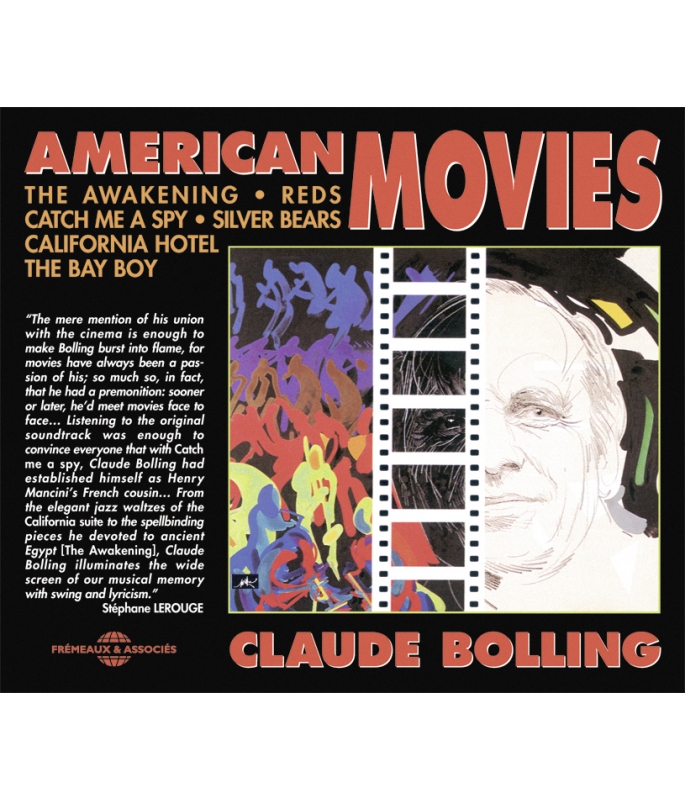
THE AWAKENING, CATCH ME A SPY, SILVER BEARS, REDS, THE BAY BOY, CALIFORNIA HOTEL
THE AWAKENING, CATCH ME A SPY, SILVER BEARS, REDS, THE BAY BOY, CALIFORNIA HOTEL
The mere mention of his union with the cinema is enough to make Bolling burst into flame, for movies have always been a passion of his; so much so, in fact, that he had a premonition: sooner or later, he’d meet movies face to face… Listening to the original soundtrack was enough to convince everyone that with Catch me a spy, Claude Bolling had established himself as Henry Mancini’s French cousin… From the elegant jazz waltzes of the California suite to the spellbinding pieces he devoted to ancient Egypt [The Awakening], Claude Bolling illuminates the wide screen of our musical memory with swing and lyricism.
Stéphane Lerouge
CD 1 : Catch me a spy / Les doigts croisés (un film de Dick Clement, 1970) • Silver bears (un film d’Ivan Passer, 1979) • Reds (un film de Warren Beatty, 1981) • The Bay Boy / Un printemps sous la neige (un film de Daniel Petrie, 1984) • California Suite / California Hotel (un film de Herbert Ross, 1981) -
CD 2 : The Awakening / La Malédiction de la vallée des Rois (Un film de Mike Newell, 1980).
Droits : Claude Bolling (Fabrication et distribution : Frémeaux & Associés) en accord avec Universal Music Jazz France, Editions Emi Music Publishing, Editions Sony Atv Harmony, Revelation Music Publishing Corp, Hachette Fox, Editions Hachette Fox, Caïd Music, Editions Golden Torch Music Corp, Studio canal Musique, Editions Emi Music Publishing.
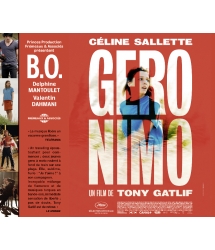
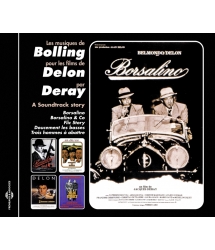

-
PisteTitleMain artistAutorDurationRegistered in
-
1Catch Me A SpyBolling Claude00:03:521970
-
2Mexican WaltzBolling Claude00:02:001970
-
3Suspence In RomanceBolling Claude00:01:181970
-
4HoraBolling Claude00:03:411970
-
5End CreditsBolling Claude00:02:001970
-
6The CrooksBolling Claude00:02:281979
-
7To The Silver MineBolling Claude00:04:281979
-
8The Bankers And The BearBolling Claude00:03:021979
-
9Goodbye For NowBolling Claude00:04:431981
-
10SnowballsBolling Claude00:01:401984
-
11DonaldBolling Claude00:02:271984
-
12Where Is JoeBolling Claude00:02:281984
-
13Farewell And FinaleBolling Claude00:04:391984
-
14California HotelBolling Claude00:05:041981
-
15Love ThemeBolling Claude00:07:011981
-
16Black BattleBolling Claude00:03:371981
-
17Beverly HillsBolling Claude00:05:091981
-
18Black FolksBolling Claude00:04:181981
-
19End CreditsBolling Claude00:02:271981
-
PisteTitleMain artistAutorDurationRegistered in
-
1Queen KaraBolling Claude00:04:001980
-
2HeroglyphicsBolling Claude00:02:571980
-
3The Inner TombBolling Claude00:02:321980
-
4Hadmid's Last JudgementBolling Claude00:02:511980
-
5The EclipseBolling Claude00:02:121980
-
6She Has A NameBolling Claude00:01:281980
-
7Kara's WillBolling Claude00:02:031980
-
8The MirrorBolling Claude00:02:251980
-
9The KissBolling Claude00:02:161980
-
10Corbeck's GardenBolling Claude00:02:351980
-
11The SirdabBolling Claude00:01:421980
-
12Jane's DiscoveryBolling Claude00:03:161980
-
13Mind Over MatterBolling Claude00:01:471980
-
14Jane's BetrayalBolling Claude00:01:511980
-
15Big DropBolling Claude00:03:311980
-
16Body Snatching CeremonyBolling Claude00:02:131980
-
17Psychiatrist's DeathBolling Claude00:03:321980
-
18The Ceremony Queen KaraBolling Claude00:08:181980
AMERICAN MOVIES CLAUDE BOLLING
AMERICAN MOVIES CLAUDE BOLLING
The Awakening • Reds Catch me a spy • Silver Bears • California Hotel • The Bay Boy
“The mere mention of his union with the cinema is enough to make Bolling burst into flame, for movies have always been a passion of his; so much so, in fact, that he had a premonition: sooner or later, he’d meet movies face to face… Listening to the original soundtrack was enough to convince everyone that with Catch me a spy, Claude Bolling had established himself as Henry Mancini’s French cousin… From the elegant jazz waltzes of the California suite to the spellbinding pieces he devoted to ancient Egypt [The Awakening], Claude Bolling illuminates the wide screen of our musical memory with swing and lyricism.” Stéphane Lerouge
L’équation est simple : pour beaucoup, Claude Bolling égale virtuosité, swing imparable et haute sophistication. A tort et à raison… A raison car Bolling est effectivement une figure-clef du jazz européen. A tort car, en même temps, il est plus que cela. Grâce au cinéma et à la télévision, ses registres d’expression se sont vertigineusement multipliés, se fondant à l’image, la prolongeant, l’enrichissant d’une dimension supplémentaire. A l’évocation de ses noces avec l’image, Claude Bolling s’enflamme. Le septième art a toujours été l’une de ses passions et, tôt ou tard, il pressentait qu’il le rencontrerait. “Pour moi, confesse-t-il, le cinéma est un détonateur à idées, qui m’amène à explorer des territoires que, sans le film comme alibi, je n’aurais jamais abordés. En soi, chaque long-métrage est une nouvelle gageure. Car la bonne musique de film doit tenir compte des bruits, des ambiances, des voix des comédiens. Techniquement, le travail consiste à composer une partition qui fonctionne harmonieusement avec les autres éléments de la bande sonore. Ce qui est à la fois contraignant et provocant : ça vous oblige à réfléchir différemment, à trouver des idées auxquelles on ne penserait pas a priori.” Après avoir notamment mis en musique plusieurs classiques de Buster Keaton, Claude Bolling signe en 1970 une partition à fort retentissement pour Borsalino, premier jalon d’une collaboration en haute-fidélité avec Jacques Deray. Comme un signe avant-coureur, le film est co-produit et distribué par Paramount. Dès lors, le cinéma anglo-saxon ne tarde pas à faire des appels du pied au compositeur, notamment avec Catch me a spy (Les Doigts croisés), pétillante comédie d’espionnage britannique signée Dick Clement, construite sur l’association entre le vétéran hollywoodien Kirk Douglas et la jeune première française Marlène Jobert. “Ce fut une aventure sans nuage, relève le compositeur. La production désirait une musique somptueuse, luxuriante, pour grande formation : “Budget illimité !” C’est plutôt agréable d’entendre ce type de demande, a fortiori quand le film s’y prête. Avec à la clef deux enregistrements, l’un à Londres, l’autre à Paris, j’ai donc bâti une vaste partition qui sonne espionnage mais avec toujours un sourire, une sorte de distance, d’ironie à fleur de croche. De plus, Dick Clement m’a encouragé quand j’ai souhaité jouer la carte du contrepoint : pour une poursuite en Irlande, j’ai écrit une Mexican waltz, assez insolite dans son rapport à l’image. Comme un avant-goût des rythmes mariachis du Magnifique…” L’écoute de cette bande originale confirme une évidence : avec Catch me a spy, Claude Bolling s’impose comme le cousin français d’Henry Mancini.
L’aventure anglo-saxonne se prolonge huit ans plus tard aux côtés du cinéaste d’origine tchèque Ivan Passer pour une comédie iconoclaste se déroulant dans les milieux de la finance, Silver bears, interprétée par Michael Caine et Louis Jourdan. “Ce n’était pas un sujet évident à traiter musicalement : l’histoire d’une escroquerie grandeur nature, façon L’Arnaque, explique Claude Bolling. Si ma mémoire est bonne, Passer voulait une bande originale partiellement dans un esprit jazz swing, en big band. Dans ce cas précis, mon image m’a rattrapé. Mais en réalité, la partition s’articule autour de trois thèmes distincts, d’esthétiques différentes, chacun caractérisant l’une des forces en présence : The Bankers, The Bears et The Crooks, sorte de frère au thème Valentin des Brigades du Tigre, d’un point de vue rythmique et harmonique.” Enregistrée à Londres, la bande originale de Silver bears aura la chance de vivre au-delà des images : dès la sortie du film, Claude Bolling intègre le thème The Bankers au répertoire de son orchestre. Par un subtil jeu d’aller-retour, cette composition rejoint la formation qui, à la base, avait motivé la demande d’Ivan Passer. Ce ne sont pas les enregistrements du big band mais les albums de crossover music, notamment la fameuse Suite pour flûte, qui amènent la Columbia à solliciter Claude Bolling pour California suite, comédie de mœurs adaptée d’une pièce à succès signée Neil Simon. “Publiée par CBS courant 1975, le 33 tours de la Suite pour flûte avait été un triomphe aux Etats-Unis, souligne le compositeur, doublé par un concert historique à Carnegie Hall. Il est même arrivé que des metteurs en scène américains synchronisent intégralement leurs films avec des extraits de la Suite, comme Paul Mazursky sur Willie and Phil. Dans le cas de California suite, la demande était sans ambiguïté : avoir exactement la même couleur que la Suite pour flûte… sans Jean-Pierre Rampal mais avec Hubert Laws, grand flûtiste américain, à la fois classique et jazz. En renfort d’Hubert, j’ai pu obtenir le magnifique Bud Shank pour les morceaux à deux flûtes (Black folks), en profitant de sa présence pour l’employer au saxophone soprano (Black battle). La Columbia et son chairman, Ray Stark, m’ont permis de travailler dans des conditions royales, logé pendant un mois dans un palace de Los Angeles, avec piano dans la chambre : “Il faut que vous soyez à portée de main, que vous puissiez passer au montage !” En soi, le film était une sorte de marivaudage social se déroulant dans un grand hôtel, avec quatre histoires simultanées mais indépendantes, construites autour de quatre couples et huit personnages, interprétés par Jane Fonda, Michael Caine, Walter Matthau, Richard Pryor… Le tout mis en scène par un ancien danseur et chorégraphe, Herbert Ross, très sensible à l’apport de la musique. Par exemple, dans le thème Beverly Hills, il m’a laissé mettre au point une couleur très française, quasiment baroque, d’une saveur inattendue sur des images d’avenues ensoleillées bordées de palmiers. Comme un écho de l’ancien monde sur le nouveau… A l’arrivée, cette partition de California suite, c’est vraiment un prolongement à la Suite pour flûte mais dans un contexte californien. A la limite, c’est autant un album de crossover qu’une bande originale de film. Toujours concernant Beverly Hills, j’avais envie d’offrir cette composition à mes complices habituels, Jean-Pierre Rampal et le guitariste Alexandre Lagoya. Aux Etats-Unis, les musiciens avaient découvert la musique en début de séance, sans répétition préalable, comme c’est toujours le cas. Du coup, à mon retour à Paris, j’ai tenu à mettre en boîte une version encore plus aboutie, plus peaufinée. Le travail de préparation de Rampal et Lagoya a fait la différence. Or, ce nouvel enregistrement n’est jamais sorti. Nous l’avions mis de côté pour un disque potentiel… et il a fallu attendre le présent album, c’est-à-dire trente ans plus tard, pour qu’il soit enfin publié !”
C’est un titre qui attire instantanément l’œil lors d’un examen attentif de la filmographie de Claude Bolling : The Awakening, littéralement “le réveil”, premier long-métrage du Britannique Mike Newell, quinze ans avant son mémorable Quatre mariages et un enterrement. Adapté d’un roman de Bram Stoker, The Awakening (sobrement intitulé en français La Malédiction de la vallée des rois) est le récit d’une malédiction, celle d’une reine égyptienne se réincarnant dans la fille d’un archéologue, interprété par Charlton Heston. Une occasion inattendue pour Claude Bolling de déployer le nuancier du fantastique, de l’envoûtement à la terreur, de ressusciter un monde musical évanoui, celui de l’Egypte antique. “Tout est parti d’un coup de fil du producteur anglais Robert Solo, expose le compositeur. Il m’a convié à une projection de travail à Londres. C’est vraiment sur place que j’ai pris conscience du challenge... et de la nature même du film. En toute franchise, je n’avais aucun antécédent dans le domaine du fantastique, à l’exception relative des Mains d’Orlac d’Edmond Greville, l’un de mes premiers travaux cinématographiques, mais dont la partition était de facture très jazz. En fait, j’ai reçu la sollicitation de Robert Solo et Mike Newell comme une provocation : a priori, The Awakening ne correspondait pas à mon emploi présumé. C’est précisément pour cette raison que j’ai accepté : pour m’obliger à être capable d’investir ce type de climat. Comme un pari avec moi-même. La qualité du film, des extérieurs, la lumière de Jack Cardiff, la perspective d’un générique conçu sur ma musique par Maurice Binder, le rôle et la présence de Charlton Heston ont également pesé sur ma décision. Néanmoins, le mystère reste entier : comment Solo et Newell ont-ils pensé à moi pour un film de momies ? Ne voulant pas les décourager, je ne leur ai jamais posé la question !” (rires)
De retour en France, Claude Bolling va s’atteler à la tâche, en essayant de trouver le juste équilibre entre son propre univers et les exigences d’un film de genre. Il implique à ses côtés une orchestratrice américaine, Nancy Beach, rôdée à ce type de production. “Son savoir-faire m’a été précieux, précise-t-il. C’est un peu comme un voyage : lorsque vous décidez d’explorer une contrée inconnue, vous serez plus efficace avec l’aide d’un guide, d’un sherpa. Malgré tout, en terme d’écriture, The Awakening demeurait une vraie gageure : il fallait maîtriser une certaine technique et essayer d’être aussi original que possible. Sans oublier d’être accessible, je dirais même lisible, ce qui chez moi est naturel. Nous avons utilisé un langage contemporain auquel j’ai essayé d’injecter mon sens du lyrisme, quelques bouffées de sentiments, comme en témoigne le thème générique (Queen Kara). Tout le pari résidait dans la manière de tracer cette voie médiane : raconter une culture antique à travers le filtre de l’école de Vienne ; créer le malaise, la peur avec une écriture moderne, tout en évoquant une civilisation primitive. L’enregistrement à Londres a été un moment spectaculaire. J’avais emmené certains musiciens français notamment le percussionniste Vincent Geminiani, spécialiste de la bronté, instrument invraisemblable, constitué d’une plaque de tôle, utilisée au XIXème pour produire les effets de tonnerre dans les pièces d’Emily Brontë. Vincent actionnait sur cette plaque des tiges métalliques, produisant des harmoniques étranges, insolites, inquiétantes… Quand je réécoute aujourd’hui cette musique, j’ai du mal à réaliser que j’en suis le compositeur ! C’est sans doute la partition de cinéma dans laquelle j’ai le plus radicalement largué les amarres avec ma famille d’origine, le jazz, ou d’adoption, la variété. Le fait de ne pas être un spécialiste du fantastique m’a sans doute donné une impulsion supplémentaire, une envie encore plus forte de réussir ma mission.” Curieusement, à la sortie de The Awakening, l’implication de Claude Bolling dans un film d’horreur à base d’égyptologie ne suscite aucune réaction particulière. Ce qui n’est pas une évidence passera comme une évidence. Si commercialement The Awakening rencontre un accueil tiède, le film se constituera au fil des années un noyau dur d’amateurs inconditionnels, tous à la recherche d’une bande originale devenue une pièce de collection. La voici pour la première fois éditée en version intégrale : un témoignage unique sur un OMNI (objet musical non identifié) dans le parcours cinématographique de Claude Bolling.
Paradoxalement, The Awakening ne débouche pas sur une nouvelle proposition dans le domaine du fantastique mais sur une œuvre engagée du comédien et cinéaste Warren Beatty, Reds. L’occasion pour Claude Bolling de tendre la main à une icône de la musique populaire américaine, Stephen Sondheim. “J’ai une grande admiration pour cet auteur-compositeur, affirme Claude. Nous partageons une même ligne de clarté et de sophistication. Pour Reds, la demande était simple : étant donné le succès de la Suite pour flûte, la Columbia m’a demandé d’arranger à ma façon une composition originale de Sondheim, Goodbye for now. Premier impératif, ils voulaient Rampal à la flûte et moi au piano, mais cette fois dans un contexte orchestré. D’où les cordes… Deuxièmement, on m’a demandé de tirer ce morceau vers une direction “aussi optimiste que possible”. Reds était un drame, il fallait le terminer sur un peu de soleil, en alléger la gravité. Dès réception de la bande, un exécutif de la Columbia m’a appelé : “C’est magnifique, Claude, mais trop optimiste !” (rires) Qu’importe, après tout : l’idée même de pouvoir confronter l’écriture de Stephen Sondheim à la mienne était déjà, en soi, enthousiasmante.” Trois ans plus tard, c’est via le Canada que le cinéma anglo-saxon prolonge sa liaison avec Claude Bolling. Une sorte d’extension à une relation entamée avec la comédie Quand c’est parti, c’est parti et Louisiane de Philippe de Broca, produits par le québécois Denis Héroux. Cette fois, ce dernier sollicite Claude pour une étude de mœurs autobiographique signée Daniel Petrie, The Bay boy (Un printemps sous la neige), deuxième long-métrage du jeune Kiefer Sutherland, dix-sept ans avant Jack Bauer et 24 heures chrono. “Si ma mémoire est bonne, se souvient le compositeur, c’était un récit d’initiation, un portrait d’adolescent, plein de justesse et de poésie. J’ai essayé de traduire à la fois sa part de jeunesse, d’impétuosité avec une ballade folk, son éveil aux sentiments avec un thème romantique pour flûte de pan soliste. Après le mixage, Daniel Petrie m’a envoyé une lettre de remerciements, l’une des plus touchantes que j’aie reçues d’un metteur en scène.” A la façon d’un carton “A suivre”, The Bay Boy trace des points de suspension dans la collaboration transatlantique entre Claude Bolling et le cinéma nord-américain, résumée, compressée, synthétisée à travers la présente (double) anthologie. Des élégantes valses jazz de California suite aux sortilèges de l’Egypte, Claude Bolling y illumine de swing et de lyrisme le grand écran de notre mémoire musicale.
Stéphane LEROUGE
© 2009 Frémeaux & Associés
english notes
Claude Bolling / American Movies
Accurate or not, it’s a simple equation: for many people, Claude Bolling equals virtuosity, unstoppable swing and a high degree of sophistication. It’s accurate in that Bolling is indeed a key figure in European jazz. And it’s also inaccurate at the same time, because Bolling is so much more than that. Thanks to films and television, the registers of Claude Bolling’s expression have dizzily multiplied and fused with visual images to extend and enhance them with an extra dimension. And the mere mention of his union with the cinema is enough to make Bolling burst into flame, for movies have always been a passion of his; so much so, in fact, that he had a premonition: sooner or later, he’d meet movies face to face. “To my mind,” he confesses, “films are detonators for ideas; they allow me to explore areas I’d never have touched if I didn’t have the movie as an alibi. Each new movie is a seemingly impossible task, because good film-music has to take account of everything: sound, background noise, actors’ voices... Technically, it means composing a score that works in harmony with the other elements in the soundtrack. And that’s a constraint, but it’s also provocative: it forces you to think differently and come up with ideas you wouldn’t have necessarily thought of otherwise.” After putting several Buster Keaton classics to music, among other things, Claude Bolling wrote a score for Borsalino in 1970 that created a considerable stir, the first milestone in a long hi-fi association with filmmaker Jacques Deray. Another premonitory sign: the movie was coproduced and distributed by Paramount. Then British and American films began playing footsy with the composer, and notably Catch me a spy, a sparkling spy-comedy from English director Dick Clement and a movie centered around veteran Hollywood star Kirk Douglas plus young French starlet Marlène Jobert. “It was all smooth sailing,” says the composer. “The production people wanted a lush big-band sound, sumptuous music in line with the budget: No ceiling! It’s very pleasant to hear producers ask for that, especially when the film lends itself to that just fine... There were two recording-dates involved, one in London and one in Paris, and so I built a vast score that had an ‘espionage’ sound, but it had a smile too, a kind of detachment... call it surface-irony, the kind that lasts an eighth note... Additionally, Dick Clement had been very encouraging when I wanted to do it in counterpoint: for the chase-scene in Ireland I wrote the Mexican waltz, and it was quite unusual in its visual rapport. Like a foretaste of the Mariachi rhythms in The Magnificent One...” Listening to the original soundtrack was enough to convince everyone that with Catch me a spy, Claude Bolling had established himself as Henry Mancini’s French cousin.
Bolling’s international film-ventures continued eight years later; he teamed up with Czech director Ivan Passer for an iconoclastic, banking-world comedy called Silver Bears, which starred Michael Caine and Louis Jourdan. “It wasn’t so easy a subject to set to music; the story was a real-life con-trick like The Sting,” explains Claude Bolling. “If I remember correctly, Passer wanted part of the soundtrack to have a swing/jazz feel, like a big-band. In this instance my image caught up with me; but the score actually revolves around three distinct themes with aesthetic differences, each characterizing one of the forces present—Bankers, Bears or Crooks—from a rhythmical and harmonic point of view, a little like the Valentin theme does in the [French TV series] Brigades du Tigre.” Recorded in London, the original soundtrack for Silver Bears was fortunate enough to live on after the picture: as soon as the movie hit the theaters, Bolling added the Bankers theme to his orchestra’s repertoire, and in a subtle to-and-fro maneuver, the composition finally returned to the band that had motivated Ivan Passer’s original request. It was not the band’s jazz recordings, however, but its crossover albums, especially its famous Suite pour flûte, which brought Columbia to give Claude Bolling a call to do California suite, a comedy of manners based on Neil Simon’s hit play. “CBS released the LP of Suite pour flûte in 1975, and it was a hit in the States,” explains the composer. “Plus it was a historic concert at Carnegie Hall. It’s even happened that American directors totally synchronized their movies with excerpts from the Suite, like Paul Mazursky’s Willie and Phil. In the case of California suite, the request was very direct: the music had to have exactly the same color as Suite pour flûte... without Jean-Pierre Rampal, but with Hubert Laws instead, a great American flautist, both in classics and in jazz. As back-up for Hubert, I managed to get the great Bud Shank for the pieces with two flutes (Black folks), and we took advantage of him being there to have him play soprano saxophone as well (Black battle). Columbia and its chairman Ray Stark let me work in conditions that were fit for a king: I was put up in a palace in Los Angeles for a month, with a piano in my room, as if they were thinking, ‘You have to stay close so you can go straight into editing!’The movie was a kind of sophisticated social banter set in a luxury hotel, with four separate threads going on at the same time, but independently of each other: they were based on eight characters making up four couples, with a cast including Jane Fonda, Michael Caine, Walter Matthau, Richard Pryor... and the whole thing was directed by Herbert Ross, who used to be a dancer and choreographer. So he was very sensitive to what the music could bring to the picture. In the Beverly Hills theme, for example, he let me put together a very French, almost baroque, color; it had quite an unexpected flavor in the scenes with sunny boulevards lined with by palm-trees. Like an echo of the old world in the new one... This California suite score finally turned out to be an extension of the Suite pour flûte, but in a Californian context. You might even say it’s as much of a crossover album as an original soundtrack. Going back to Beverly Hills, I wanted to give that composition to my usual accomplices, Jean-Pierre Rampal and guitar-player Alexandre Lagoya. In The United States, the musicians didn’t discover the music until the session started; they didn’t have any rehearsals beforehand as per usual. Anyway, when I got back to Paris I wanted to tape a version that was even more complete; a more refined and finished take. The work that Rampal and Lagoya did in preparation for this recording made all the difference... but this new version was never released. We put it to one side: potentially it was another record altogether. And so we had to wait until the present album—a whole thirty years later–to see it finally come out!”
If there’s a title that instantly catches the eye when you take a close look at Claude Bolling’s filmography it’s The Awakening, the first feature shot by English director Mike Newell (fifteen years before his memorable Four Weddings & a Funeral). Adapted from Bram Stoker’s novel The Awakening, the film tells the story of an ancient Egyptian queen who possesses the daughter of an archaeologist (Charlton Heston). The movie gave Bolling an unexpected opportunity to display his palette of the supernatural, from sorcery to terror, and to resuscitate a musical world that had long disappeared, that of ancient Egypt. “It all started with a phone call from English producer Robert Solo. He invited me down to a screening in London, and it was really there that I realized what a challenge this was, not to mention the nature of the movie... Quite frankly, I’d never had anything to do with the fantasy genre before that, except for Edmond Greville’s Hands of Orlac, one of my first jobs in movies, but the score for that one was very much jazz. In fact, when Robert Solo and Mike Newell came to me, I thought it was quite provocative: at first sight, The Awakening was something quite out of character for me. And that’s precisely why I agreed to do it: to force myself to be capable of getting my mind around this type of climate. It was like betting myself I could do it. Of course, there were other factors that helped me make my decision: the quality of the film and its location-shooting; Jack Cardiff’s lighting, and the perspective of Maurice Binder doing the opening-title with my music; plus Charlton Heston’s role and presence... There was still one big mystery though: where on earth did Solo and Newell get the idea of me doing a film with a mummy? I didn’t want to discourage them, so I never asked!” (Laughter). Back in France, Claude Bolling got down to work trying to find the right balance between his usual universe and the demands of a genre film. He got American film orchestrator Nancy Beach involved, as she was used to that type of production: “Her savoir-faire was extremely precious to me,” he says. “It’s a little like going on a trip: if you decide to explore unknown territory, you’ll be more efficient if you have a Sherpa to guide you. But even so, as far as the composing was concerned, writing The Awakening seemed an impossible thing to do: it needed mastery of a certain technique, and at the same time I had to try and be as original as possible, yet still remain within reach, or stay legible, you might say, which came more naturally to me. We used contemporary language, and I tried to inject my own lyricism and breathe some feeling into it, as in the main title for example (Queen Kara). Carrying this off depended on the way this middle course was going to be handled: I had to relate an ancient culture through the filter of the Vienna School, and create a frightening malaise using modern writing techniques, and still evoke a primitive civilization. Recording it in London turned out to be spectacular: I’d taken some French musicians with me, especially percussionist Vincent Geminiani, and one of his specialties was an extraordinary instrument called the Bronte. It’s made of curved metal plates, and they used it in the 19th century to create thunder-effects in Emily Brontë plays. Vincent used metal strips against these plates to produce some strange, most unusual harmonics, unsettling, even... When I listen to this again today I have trouble recognizing it as one of my own compositions! It’s probably the film-score that represents my most radical move away from my own family, jazz, or my adoptive one, pop music. The fact that I wasn’t a specialist in the fantasy-film genre probably gave me that extra incentive; a stronger desire to succeed in the challenge.” Strangely enough, when The Awakening was released to the public, the fact that Claude Bolling’s name was tied to a horror film (and Egyptology!) didn’t cause any particular reaction at all, as if his involvement was quite natural, although it was actually anything but. The Awakening met with a lukewarm reception at the box-office, yet over the years it has gathered a cult-following, with fans hunting for a soundtrack that has become a collectors’ item. So here we have the first reissue of its complete version: unique proof of the existence of a UMO (Unidentified Musical Object) in the film career of Claude Bolling.
That The Awakening didn’t lead to another offer in the fantasy genre, but to Reds, a militant movie by actor/filmmaker Warren Beatty, was something of a paradox. It was also a chance for Claude Bolling to hold his hand out to an icon in American popular music, Stephen Sondheim. “I greatly admire his songwriting,” says Claude. “We share the same principles of clarity and sophistication. Reds was quite a simple request: due to the success of Suite pour flûte, Columbia asked me to do my own arrangement of an original Sondheim composition called Goodbye for now. Their first condition was that they wanted Rampal to play flute, with me on piano, but this time in an orchestral context. Hence the strings... Second, they asked me to take the piece in a direction that was “as optimistic as possible”. Reds was a drama, but it had to end on a sunny note that would reduce its gravity. As soon as he got the tape, an executive from Columbia called me up saying, ‘It’s magnificent, Claude, but it’s too optimistic!’ [Laughter]. Whatever, it didn’t matter, because just the idea of associating Stephen Sondheim’s composing with my own was already a thrilling prospect in itself.” Three years later, Claude Bolling’s affair with international films continued, this time via Canada, in a kind of sequel to a relationship that had begun with two films produced by Denis Héroux from Quebec: Héroux’s own comedy Enuff is enuff and Philippe de Broca’s Louisiana. This time, Héroux solicited Claude to do an autobiographical comedy called The Bay Boy, directed by Daniel Petrie; that movie, incidentally, marked the second appearance in films of the young Kiefer Sutherland, seventeen years before his success as Jack Bauer in 24. “As I remember it,” says the composer, “it was the story of an initiation, an adolescent-portrait that was accurate and poetic. I tried to translate two ideas at the same time: youthfulness and impetuosity with a folk ballad; and the hero’s sentimental awakening with a romantic theme played solo on the Pan flute. When the mixing was over, Daniel Petrie sent me a thank-you note that was one of the most touching letters I ever received from a director.” The film The Bay Boy comes like one of those “to be continued” captions, a series of suspension points in Claude Bolling’s association with films from across the Atlantic. This double anthology is a summary of that, a packed synthesis of a relationship where, from the elegant jazz waltzes of the California suite to the spellbinding pieces he devoted to ancient Egypt, Claude Bolling illuminates the wide screen of our musical memory with swing and lyricism.
Stéphane LEROUGE / Translation : Martin DAVIES
© 2009 Frémeaux & Associés
Catch me a spy / Les Doigts croisés
Un film de Dick Clement (1970)
01-Catch me a spy (main title) 3’52
02-Mexican waltz 2’00
03-Suspense in romance 1’18
04-Hora 3’41
05-End credits 2’00
P 1970 Sido Music / Hortensia • Editions Sido Music Avec l’aimable autorisation de Universal Music Jazz France
Silver Bears
Un film d’Ivan Passer (1979)
06-The crooks 2’28
07-To the silver mine 4’28
08-The bankers and the bears 3’02
P 1979 Droits réservés Editions Emi Music Publishing
Reds
Un film de Warren Beatty (1981)
09-Goodbye for now, par Jean-Pierre Rampal et Claude Bolling 4’43
(Stephen Sondheim, arrangement de Claude Bolling)
P 1981 Droits réservés • Editions Sony ATV Harmony / Revelation Music Publishing Corp.
The Bay Boy / Un printemps sous la neige
Un film de Daniel Petrie (1984)
10-Snowballs 1’40
11-Donald 2’27
12-Where is Joe ? 2’28
13-Farewell and finale 4’39
P 1984 Hachette Fox Editions Hachette Fox
California Suite / California Hotel
Un film de Herbert Ross (1981)
14-California hotel (main title) 5’04
15-Love theme 7’01
16-Black battle 3’37
17-Beverly Hills 5’09
18-Black folks 4’18
19-End credits 2’27
Solistes : Hubert Laws, flûte. Bud Shank, flûte, saxophone soprano. Claude Bolling, piano. Tommy Tedesco, basse. Chuck Domanico, guitare. Shelly Manne, batterie.
Sauf 17 : Claude Bolling trio, Jean-Pierre Rampal (flûte), Alexandre Lagoya (guitare).
P 1981 Droits réservés. Titre 17 : P 1981 Caïd Music. Editions Golden Torch Music Corp.
The Awakening / La Malédiction de la Vallée des Rois
Un film de Mike Newell (1980)
01-Queen Kara 4’00
02-Heroglyphics 2’57
03-The inner tomb 2’32
04-Hadmid’s last judgement 2’51
05-The eclipse 2’12
06-She has a name 1’28
07- Kara’s will 2’03
08-The mirror 2’25
09-The kiss 2’16
10-Corbeck’s garden 2’35
11-The sirdab 1’42
12-Jane’s discovery 3’16
13-Mind over matter 1’47
14-Jane’s betrayal 1’51
15-Big drop 3’31
16-Body snatching ceremony 2’13
17-Psychiatrist’s death 3’32
18-The ceremony / Queen Kara (finale) 8’18
Musique composée par Claude Bolling / Orchestre dirigé par Marcus Dods / Orchestrations : Claude Bolling et Nancy Beach / Régie d’orchestre : Nat Peck / P 1980 Studiocanal Musique • Editions Emi Music Publishing / Album conçu et réalisé par Stéphane Lerouge et Claude Bolling / Coordination : Manuelle Mazerand / Mastering : Alexis Frenkel, Art et Son Studio
Remerciements : Nat Peck / Catherine Serre / Dominique Brunet / Laurence Braunberger / Daniel Richard / Bertrand Liechti / Christelle d’Almeida / Martin Davies / Irène et David Bolling / Serge Darmon…
CD AMERICAN MOVIES CLAUDE BOLLING © Frémeaux & Associés (frémeaux, frémaux, frémau, frémaud, frémault, frémo, frémont, fermeaux, fremeaux, fremaux, fremau, fremaud, fremault, fremo, fremont, CD audio, 78 tours, disques anciens, CD à acheter, écouter des vieux enregistrements, albums, rééditions, anthologies ou intégrales sont disponibles sous forme de CD et par téléchargement.)
